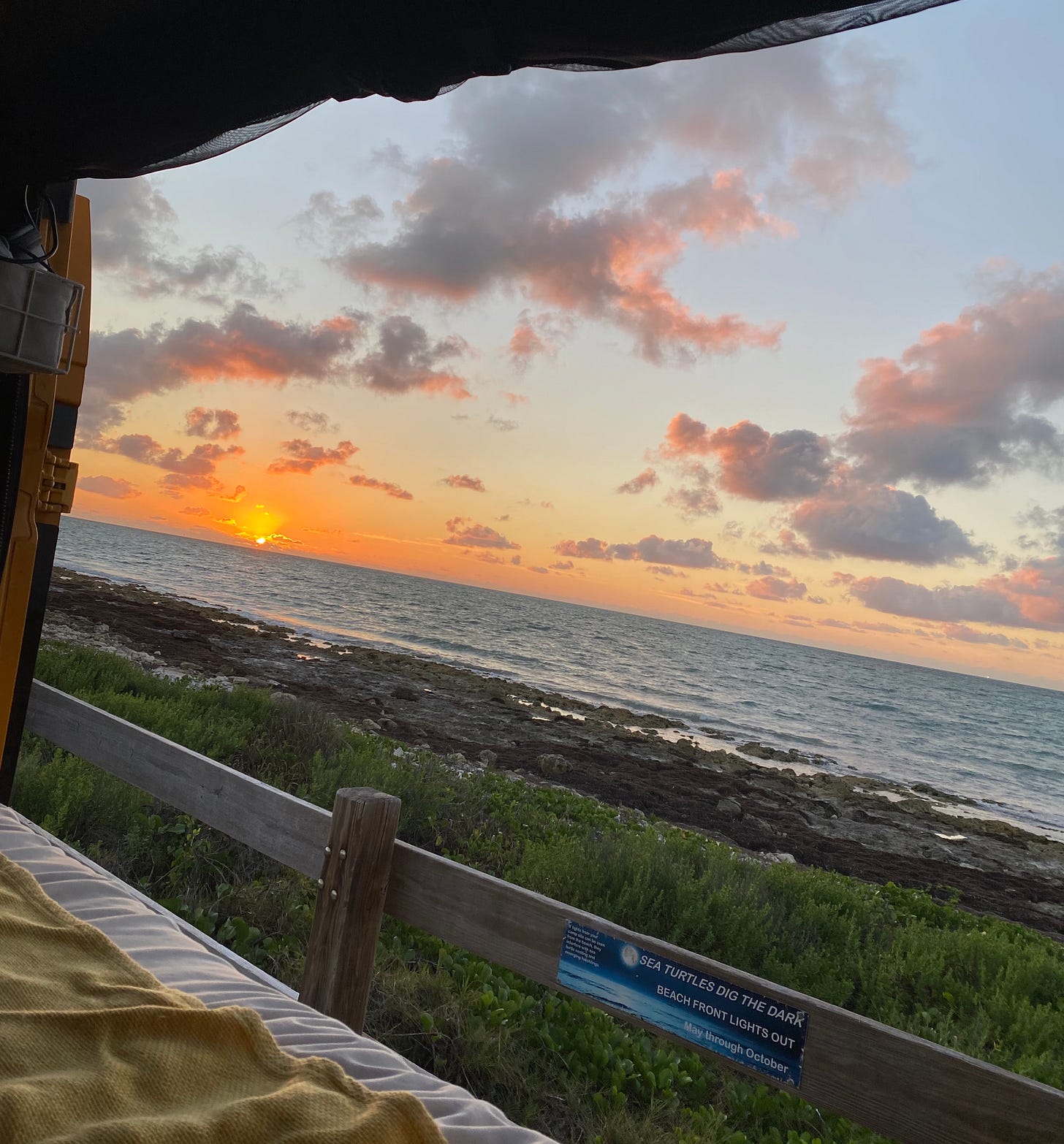Against fireworks and greedy human pleasures
There is no meaningful need for artificial light and sound displays—but so much need for us to marvel at what already exists.
When I was small, the 4th of July was one of my favorite holidays. We—me, my sister, our parents, my grandma, aunts, uncles, cousins, everyone—would all meet in northern Wisconsin for a local firework show. The display took place at a rural airport where wild strawberries no bigger than my pinky fingernail grew in scrubby grass. (My dad exclaimed every time he found a new bush, even when the novelty would have worn off for another adult.) I caught grasshoppers. My sister mothered our little cousins. We waved sparklers and wore glow sticks and laughed. Later we brought boyfriends, and eventually we stopped attending altogether—the social life of a growing high-schooler called—but for years that firework show was the backdrop of golden family memories.
Today I do not celebrate the 4th of July. I am not terribly patriotic (if anything, I have have become unpatriotic under our current administration). I cheer for my extended relatives mostly from afar. Sean and I are happy on a path that dismisses the suburban dream of our own childhoods.
I still remember the fireworks, though. They’re mesmerizing in my memory.
But we humans are the only creatures to think so.
While reading The Darkness Manifesto in the Florida keys this past winter, I was struck by how harmful fireworks are not only for their volume and physical pollution but also also their light. I’d long since grown disillusioned with loud displays—immersing yourself in the dog training community can do that—but now I see that the side effects are greater than anxious pets requiring thundershirts and local shelters seeing spikes in stray arrivals.
And for what? Fifteen minutes of excitement?
As I watched the sun set over the Atlantic, I realized: If I can’t find the same joy I once got from fireworks in a sunrise or sunset or the stars, there’s something missing in me—not in the world around me. There is no truly meaningful need for grandiose artificial light and sound displays, but there is so much need for us to hone our ability to marvel at what already exists.
Of course I get the emotional importance of traditions. I understand the swooping sensation of awe—the way explosions burst not just in the sky but our own chests—as we experience a collective high watching a show people put together just for fun. We humans make things. We’re creative. We are a species who loves fun. I want to embrace that, but I have to ask: How can we purposefully set off things like fireworks when we know the harm they cause?
I used to believe drone shows and other lighting displays were obvious ethical alternatives, but after The Darkness Manifesto I’m not sure anymore. Although they’re an improvement over destructive firework shows with lingering physical debris, light alone can be disruptive.
I’m coming to think the real solution is to remember the shows we’re already given— not by fellow humans but by this planet we call home—every day.
I once laughed at folks who clapped when the sun set. Now I am one of them. Ocean sunrises rank higher than any explosion. The Milky Way is more deserving of my awe than a Las Vegas light show. I was enthralled with NYC’s city skyline the first time we visited—I still love the way Manhattan twinkled from our parking spot in Brooklyn overnight, perfectly reminiscent of all the songs I’d heard—but that artificial wonder pales against other things I’ve seen. It is a smaller joy than bioluminescent plankton and the night sky rotating around Polaris and being able to reliably find Polaris and convincing my partner to cheer at the colored horizon. It is a smaller joy than hearing bats call and deciding to admire rather than fear moths (they sometimes pollinate more than birds and bees together!) and watching a raccoon eat an actual crustacean instead of trash people left behind.
Our inability to appreciate the natural world’s wonder does not constitute a failing of the natural world. The failing is our own.




At this point, I only look forward to fireworks because I use them to simulate gunfire and proof Blue's Schutzhund obedience. But great thoughts as always! I've visited some truly dark zones in the last few years (20 miles into a no-roads wilderness area with no plane traffic overhead!), and the difference is incredible- the wildlife acted differently!